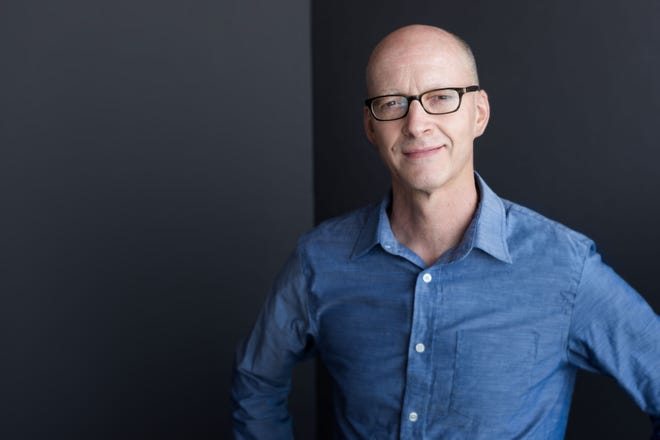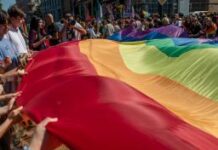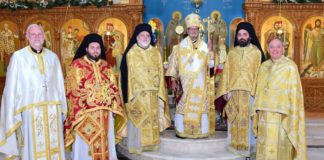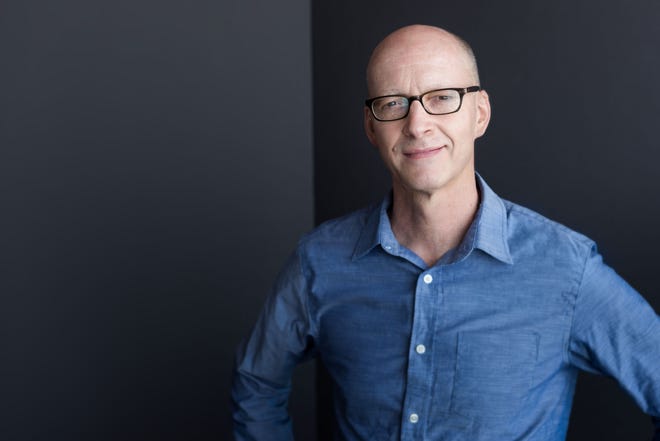
With his new book, Tucson resident and award-winning food writer John Birdsall captures the duality of the late James Beard, one of the first high-profile food personalities in America, whose struggles as a closeted gay man influenced ideas about home cooking.
Over the course of five-plus years, Birdsall set out to write “The Man Who Ate Too Much: The Life of James Beard,” the definitive biography of a man who would brisk at being called a chef. Digging past Beard’s sanitized public image, Birdsall’s research portrays a complicated, and often lonely figure who helped shape American culinary culture.
Before moving to Tucson in 2020, Birdsall grew up in the Bay Area and cooked professionally for nearly two decades, starting with an apprenticeship at Greens Restaurant in 1983. He later transitioned into becoming a full-time writer and contributed to the San Francisco Sentinel, an LGBTQ weekly.
He later worked as a food critic and edited SF Weekly’s food blog. Birdsall has won two James Beard Awards for food and culture writing, in 2014 for “America, Your Food Is So Gay” printed in Lucky Peach magazine and in 2016 for “Straight-Up Passing” printed in queer food journal Jarry.
On May 5, Tucson-based organization Southern Arizona Senior Pride is hosting a free virtual event with Birdsall and Food Network star Ted Allen to discuss Beard’s legacy and fraught life.
The Arizona Republic spoke with Birdsall recently ahead of the event. (Answers have been edited and condensed for clarity.)
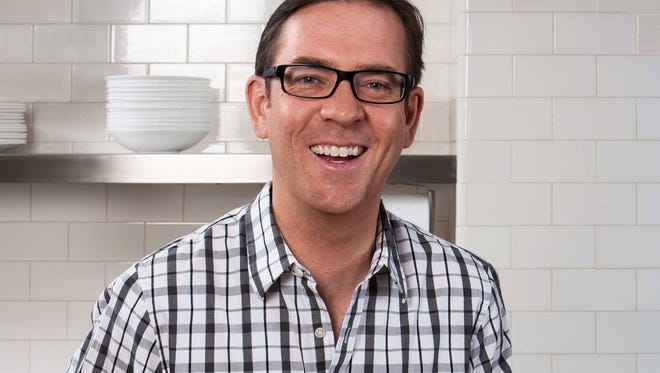
‘I wanted to look at this lingering stigma of being queer in the kitchen’
Question: Why did you want to pursue this biography of James Beard? What part of Beard’s story did you relate to?
Answer: In the late 1960s I lived in a suburb outside San Francisco where my parents became close to a gay couple that lived nearby, Pat and Lou. I could tell from my parents’ conversations, not a lot of people around us accepted them.
What fascinated me about Beard was that similar experience — how privately it’s possible to live a really rich life, especially around food, but publicly, having a certain armor around your identity. That duality of public and private I grew up seeing in these neighbors that I loved was a really important part of my research into Beard’s life. I had an insight to those generations before the LGBTQ liberation movement, those struggles, and I felt a real emotional pull.
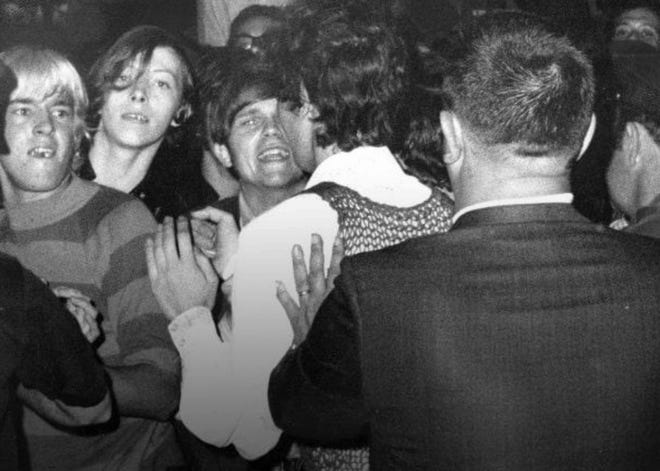
Q: In your article “Straight-Up Passing,” you talked about your 2009 idea to interview every gay and lesbian chef in San Francisco. But many chefs balked at getting involved. Why do you think that was?
A: I felt that a number of chefs I looked at, they felt being labeled that way would maybe limit the perception, make it seem like they weren’t serious chefs. Like it was acceptable to be out, but “it’s just part of who I am, not something I bring to work, it doesn’t define me.”
Fine dining has been about a chef’s personal expression and it was important for chefs to create food that expressed their resume, who they were, what they were exposed to growing up, experienced when they were younger. But somehow, being queer was off the table. I was interested in exploring that dynamic, why it didn’t seem to be a problem for straight fine dining chefs to talk about dishes they created for their spouse, feelings that went into a certain dish. I wanted to look at this lingering stigma of being queer in the kitchen.
With a few people I spoke with, there was a sense that being too out was a type of activism. That in the culture of especially fine dining, it didn’t seem appropriate. Like it was either distracting or unprofessional or detracts from your art.. I had one chef say, “What would you want me to do? Garnish my plates with Pride flags?”
Q: Did you feel this way when you were working in the kitchen yourself?
A: I found myself hiding a lot, not choosing to talk about my private life. As a white gay cis man, trying to pass is an option that I know is not available for a lot of queer people in the kitchen. I should say, even though I wasn’t aware of what I was doing, I found it necessary to try to hide in key points, in certain jobs I had, certain people, certain crews that I would work with.
For me, it was a matter of just trying to be safe so that I could do my best work. There’s a lot of pressure in the industry to either conform or get out. That’s the sad thing for me.
‘There’s a sort of reckoning happening with the culture of food’
Q: For chefs and restaurateurs with a public platform, what kind of responsibility do they have to speak up on homophobia and discrimination in restaurants?
A: Absolutely there’s a responsibility. The sort of reckoning for gender and racial equality, and just representation in the industry, that feels more urgent to me now. In queer culture generally, queer and trans people are so diverse that it’s hard to talk about one queer experience in the kitchen. There are so many intersecting issues with queerness: gender, race, trans issues — it’s hard to talk about queer issues in isolation.
There’s a sort of reckoning happening with the culture of food in America, looking at whose cultures have been erased from the history of American food. I feel like queer people have figured out in some way, sometimes tortured ways, to survive in the industry. But many of us survived because we could act like the dominant, straight white culture of restaurants.

Q: Where does James Beard fit in with all this, leading up to the restaurant reckonings?
A: So much of James Beard’s experience was about accommodating a world, certainly in the food and media industry, that was very small and had very strong gatekeepers about what was possible.
He was one of the first people in American food to create a really public identity around food. But he was also complicit in this culture of presenting this very conservative, straight, conventional face. For me, the story of James Beard becomes poignant after Stonewall in 1969. He’s older, almost in his 70s when Stonewall happens. You see him under pressure to reveal who he is, become part of this movement, but he’s not able to — there are editors, publishers, friends trying to protect him, there’s too much at stake.
‘The whole biography is based on the sense of speaking out’
Q: Being a food personality himself, what would Beard think of the rise of the “rock star” and celebrity chefs? Many high-profile chefs have been scrutinized in recent years.
A: I believe it was Ruth Reichl who coined the term “rock star chef.” There were these road trips with big-name, splashy fundraisers that would invite chefs from around the country: Alice Waters, Wolfgang Puck, Jeremiah Tower.
The visibility of high-profile chefs you see now started in the late 1970s. I think James would see the absurdity of it. This culture did eclipse him — he died in ’85. Nobody wanted a 70-something man as a cooking god and he always considered himself an amateur. He was an old-fashioned expert who by this time, was not seen as very exciting anymore.
Before this generation, restaurant chefs were nameless and faceless. Invisible men who worked behind the swinging door. Now they are in magazine profiles, people want a sense of their lifestyle. It definitely contributed to this culture of abuse in the kitchen. It made chefs sort of unaccountable. There was so much adulation for these chefs, how they treated people in the kitchen became invisible.

Q: We’ve spoken previously about the James Beard Awards (which is undergoing its own overhaul) and how he would have liked some aspects, but not others.
A: Part of my impetus for writing the Beard biography and earlier pieces, I was just so pissed off because I knew the homophobic culture of restaurants and the fact James Beard had a tortured life because of it. I looked around and essentially every chef wanted to win a James Beard Award as a sort of career peak. I just felt the injustice of it, people wanting to wear James Beard’s image around their neck, and so casually express homophobia with their staff.
And so I wanted to write about Beard’s sexuality and how that interacted with how he cared about food. All the things he created about food, how that influenced a broader sense of the 21st century. The whole biography is based on that sense of speaking out and wanting chefs and everybody in the food industry to realize the truth of the food culture they inherited.
Event: ‘In the Kitchen Closet’
When: May 5, 2021 from 10:00–11:15 a.m.
Where: Virtual
Cost: Free, but donations accepted to support Southern Arizona Senior Pride
Details: Ted Allen, host of Food Network’s “Chopped,” chats with award-winning food writer John Birdsall about the secret gay life of James Beard. Allen was the food and wine connoisseur on the Bravo’s original reality TV series “Queer Eye.”
There will be a 15-minute Q&A session. Register to attend online at soazseniorpride.org/event/in-the-kitchen-closet.
“The Man Who Ate Too Much: The Life of James Beard” is available for purchase on Bookshop.org.
Reach the reporter at Priscilla.Totiya@azcentral.com. Follow @priscillatotiya on Twitter and Instagram.
Subscribe to azcentral.com today to support local journalism.

